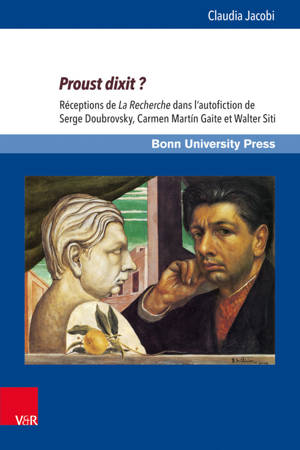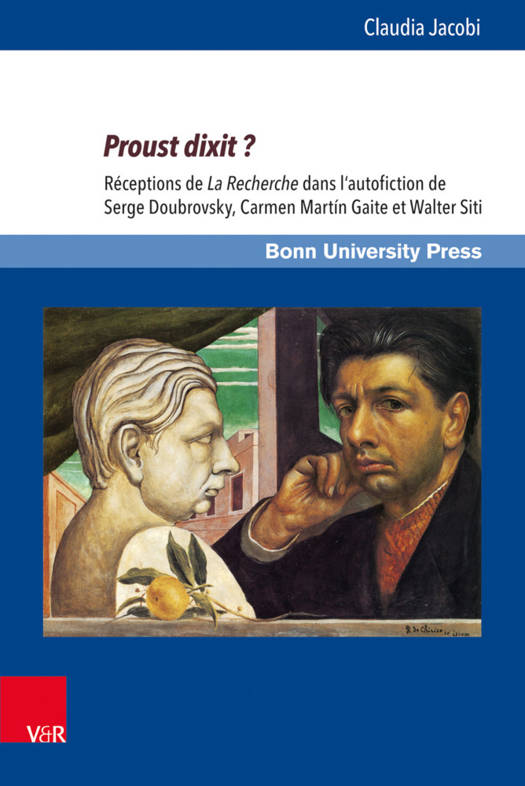
- Afhalen na 1 uur in een winkel met voorraad
- Gratis thuislevering in België vanaf € 30
- Ruim aanbod met 7 miljoen producten
- Afhalen na 1 uur in een winkel met voorraad
- Gratis thuislevering in België vanaf € 30
- Ruim aanbod met 7 miljoen producten
Zoeken
Proust Dixit ?
Receptions de la Recherche Dans l'Autofiction de Serge Doubrovsky, Carmen Martin Gaite Et Walter Siti
Claudia Jacobi
€ 54,45
+ 108 punten
Omschrijving
Whether Proust's research can be classified as autofiction is subject to debate. What is not debatable is its glorification as the founding of autofictive writing. Many authors praise Marcel Proust as a revolutionary, exalting him as a quintessential literate, if not even a patron saint of this controversially discussed genre. The present study examines Proust's reception as exemplified by three preeminent writers of autofiction in France, Spain and Italy. The Proustian reminiscences span an ambivalent adoption of metaphors relating to memory and death in Doubrovsky's postmodern autofiction, extending through the fantastic rewriting of Combray and the Temps retrouvé by Carmen Martín Gaite up to the ironic revision of the Albertine figure and Proust's epiphany in Walter Sitis hyper-realistic autofiction.
Specificaties
Betrokkenen
- Auteur(s):
- Uitgeverij:
Inhoud
- Aantal bladzijden:
- 299
- Taal:
- Frans
- Reeks:
- Reeksnummer:
- nr. 8
Eigenschappen
- Productcode (EAN):
- 9783847105701
- Verschijningsdatum:
- 11/07/2016
- Uitvoering:
- Hardcover
- Formaat:
- Genaaid
- Afmetingen:
- 163 mm x 239 mm
- Gewicht:
- 449 g

Alleen bij Standaard Boekhandel
+ 108 punten op je klantenkaart van Standaard Boekhandel
Beoordelingen
We publiceren alleen reviews die voldoen aan de voorwaarden voor reviews. Bekijk onze voorwaarden voor reviews.











